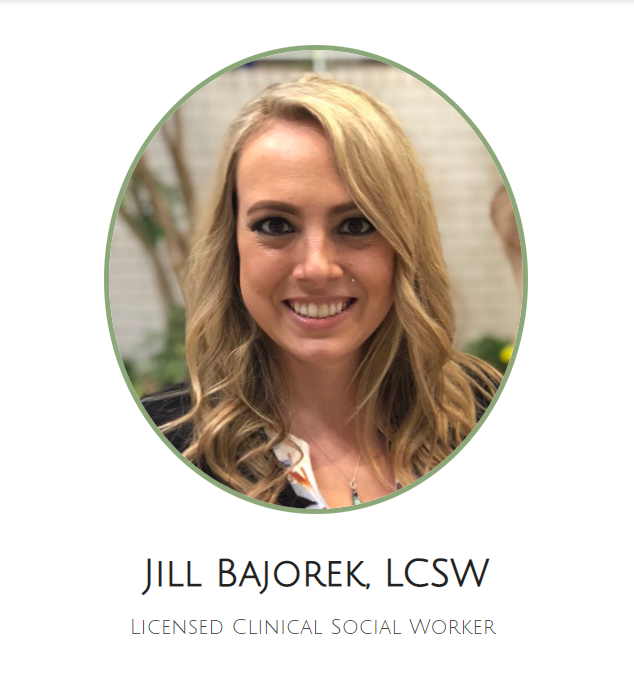Mental Health 101: Why self-care is important for students to practice
August 27, 2018
Student life is hectic. Between homework, tests, and the navigation of social circles, this whirlwind lifestyle can impact our health. Although our body tends to remind us of our physical needs through mechanisms such as thirst or hunger, often times we find ourselves neglecting an equally crucial part, our mental health.
The idea of taking care of one’s mental health is not a new concept. However when we are constantly on the go and focused on others, it is one of the first things to lose priority. When our mental health suffers, inevitably we suffer too.
Jill Bajorek, a licensed clinical social worker and LGBTQ+ specialist at Encircle, a psychological practice in Chicago, offers great insight into how mental health plays a big role in our lives and how self-care is crucial to our overall health.
“Self care is going to be different for everybody. […]There are plenty of articles out there about doing yoga or meditation, but the reality is that it isn’t going to work for everybody,” Bajorek says.
It’s easy to get caught up in the idea that self-care is labeled by specific activities. We see it through hashtags and Instagram posts of social media influencers relaxing in luxury bubble baths and laying out for days at a time on white-sand beaches. That is not reality for most people.
For some people self-care might look like early morning yoga or meditation but it can come in numerous of forms.
One of my favorite forms of self-care is one that a majority of people struggle with, saying “no.” While it can be uncomfortable and definitely goes against what society expects from us, saying “no” is healthy; it is listed in Forbes article “Practicing Self-Care is Important: 10 Easy Habits to Get You Started.”
Saying “no” to plans you don’t want to have might be uncomfortable at first, but how many times have you found yourself dreading getting ready for an event you didn’t want to go to in the first place? By releasing the idea that we’re obligated to say yes to invitations or favors, we can save ourselves from unneeded and unwelcomed anxiety.
For some, self-care is knowing what they are capable of doing, regardless of how small the task might seem to others.
I participate in several therapy sessions and play an active role in the recovery process of someone who suffers from severe depression and PTSD. This has taught me that sometimes the “smallest” of tasks can seem very big and daunting to some people.
Bajorek touches on this topic and said, “Sometimes that might mean isolating, and just staying at home and watching Netflix. It may seem like maybe you are just laying in bed… but really you are connecting with the show, or you might just be answering text messages but that is all you can do that day.”
Being self aware of what you can mentally handle on some days is crucial to self-care.
Another big role with self-care is physical wellness.
As cliché as it may sound, factors such as diet, exercise, and sleeping habits have a big impact on our overall mental health. I have personally experienced the level of impact working out can have on one’s mental health. Due to an injury, my regular training schedule was interrupted. In the two months that I was not able to workout, my mental health declined. I was anxious, bottled up emotions, and felt constantly depressed.
Bajorek says there’s a connection between body and mind.
“In terms of physical and psychological wellness, they’re always going to connect. Exercise is going to affect body chemistry, same with diet. [There are] studies showing it [exercise] can sometimes act as a natural antidepressant in some ways… Even beyond a chemical component, it is doing something for yourself to feel better. It’s going to feel like you are doing something for you. At the end of the day only you can control that.”
While it is important to engage in activities that make us feel good, it is also important to understand that not all activities are healthy and some can develop into other issues.
So how do we distinguish between positive self-care practices and negative habits masquerading as self-care?
According to Bajorek, problematic behaviors are questioned a lot but there are some signs to look out for. She says, “That’s basically when behaviors start affecting other things. Are you doing something that prohibits you from going to work every day? […] Are you doing things that make you skip class and are failing a course because of it? Those are the things that we need to watch out for. […] I guess the question is, the indulgences that you do, can you live without them? Is it something that you let go, you can do the other meaningful things in your life? If you can’t… that might be something to look at.”
For self-care to be effective, it is important to embrace it fully and to understand why it is an important part of our lives. As Dr. Maria Barrata, a practicing psychologist based in New York, writes in Psychology Today, “ self care means taking time to love yourself.”
Students can take care of their mental wellness by stopping at the Student Counseling Service center in room B-119 on the main campus.








